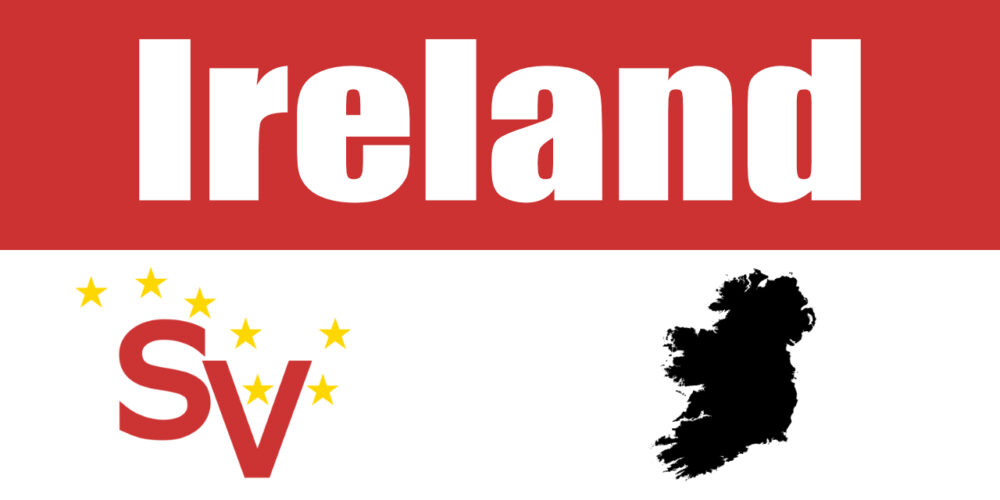A spectre is haunting sections of the Irish left: the spectre of Irish reunification.
Ever since Britain voted for Brexit—a position supported by the CPI—the political tectonic plates upon which the partition of Ireland rests have become unstable. The emergence of Sinn Féin as the largest party in the Stormont Assembly, and the recently released census figures for the Six Counties, added further shocks to the political equilibrium. Irish reunification, discussion of which has been beyond the pale in “respectable” political circles, has now become a legitimate topic in the media and within the ranks of Fianna Fáil and Fine Gael. Even some “liberal” unionists have begun to look again at reunification, albeit as a means of getting back into the EU.
We can be certain that any movement towards reunification led by the bourgeoisie will not result in the anti-imperialist 32-county republic sought by communists and by republicans. The recent furore over the celebration of the Republic’s senior women’s soccer team shows that “official” Ireland is still uncomfortable with our history of struggle against British imperialism, while there is widespread popular identification with that struggle.
Unfortunately some sections of the “left,” even those who gave lip service to the demand for Irish unity, have now put forward arguments against any movement towards reunification.
Three main arguments have been advanced. The first is that reunification is a distraction from class politics, the second that there should be no attempts at reunification until the majority of the Protestant/unionist/loyalist community supports it, and the third that any reunification will be at the behest of imperialism, so it must be opposed by the left.
The first argument purports to be radical and revolutionary and rejects the call for national reunification as reactionary and a distraction from the struggle for socialism. It rejects Connolly’s position that the struggle for national independence and the struggle for socialism are two sides of the same coin. It also ignores the history of China, Cuba, Vietnam and other countries whose struggle was anti-colonial as well as anti-capitalist. Far from being revolutionary, such a position would leave the make-up of a united Ireland to forces hostile to socialism and the working class.
Sectarianism was, and remains, the means by which British imperialism divided the Irish people, defeated the struggle for independence, and partitioned the country.
The second argument against unity—that it cannot be allowed to happen until the Protestant/unionist/loyalist community support it—is a sectarian position. It perpetuates the sectarian division within the Irish working class by giving one section a veto over progress. It is an objectively pro-imperialist position, which it shares with the most reactionary elements of the British capitalist class and its agents in Parliament and the media.
Those on the “left” who support this position, far from being the vanguard of the working class, believe that the working class should only advance at the pace allowed by the most reactionary, pro-imperialist ideology. It accepts and works within the parameters allowed by imperialism. It is akin to telling the Palestinians that they can have their own state only when the majority of Israelis agree; or that the ANC should not have overthrown apartheid until the majority of white South Africans agreed.
The third argument against unity is that it will come about as a result of decisions made by imperialism, and therefore it must not be supported. Proponents of this position also argue that as long as the 26 Counties remain within the EU, unity would be a retrograde step for the working class in the North. Unless there is a vast change in the balance of forces nationally or internationally, any united Ireland that emerges would more than likely be capitalist and ensnared within the grasp of imperialism.
They gloss over the fact that partition was imposed and is maintained by imperialism. Are we really to accept that a partitioned Ireland, dominated by imperialism, is more acceptable than a united Ireland, still dominated by imperialism but with a united working class capable of confronting imperialism? It is a very pessimistic position to adopt. It believes that imperialism will be able to implement its plans without any opposition. It is a defeatist position, which doesn’t believe in the revolutionary potential of the Irish working class.
Back in 1918 the bourgeois nationalists said that Labour must wait. In 1922 the infant CPI tried to get the republican forces to adopt a socialist programme to rally support for the Republic. They were rebuffed. Is the labour movement to leave the political and economic structure of a future united Ireland to those forces that are opposed to socialism?
We must organise all-Ireland campaigns on such issues as health, housing, the environment, sustainable economic development, and neutrality. We must not wait for a British government decision to hold a referendum, nor for the bourgeoisie, north and south, to broker a deal between themselves. We must build the unity of our class through joint struggles and lead the movement towards national unity, independence, and socialism.






